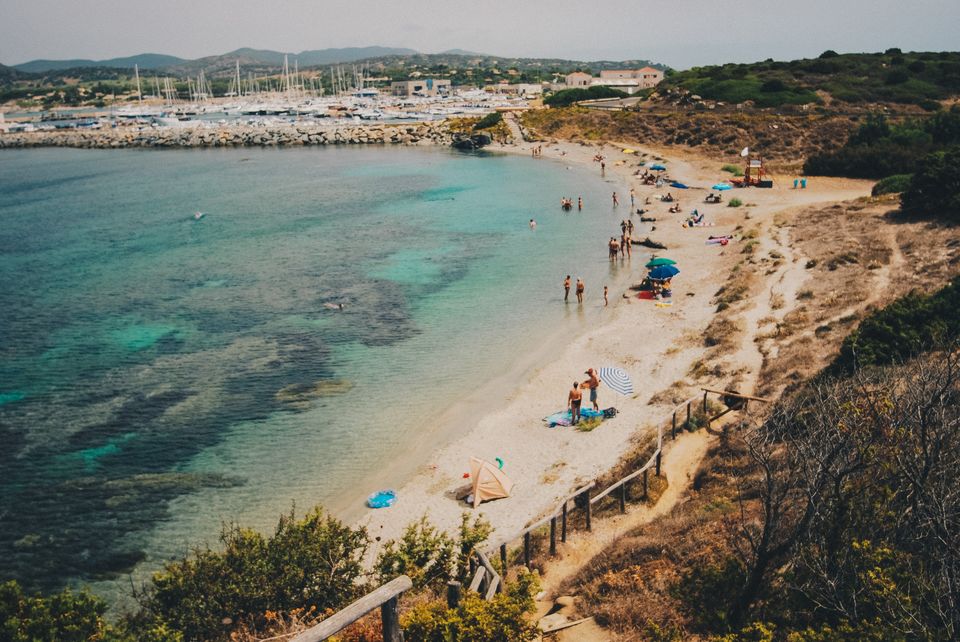
I feel like in the past few years, every time I’ve been to a beach, I’ve come back disappointed. Instead of being the calming places they used to be when I was a child, beaches have now turned into crowded, open trash cans, choked up to the brim with filth that just doesn’t seem to be going away.
The constant influx of tourists and travellers to beaches every season has led to increased environmental pressures on their fragile ecosystems. From loss of marine habitat and pollution, to issues like soil degradation, air pollution, loss of culture, and increase in natural hazards – tourism has a massive impact on the environment in coastal areas.
Thankfully, the eco-friendly wave is slowly making its way to the beaches as well. And no, going green and being eco-friendly is no longer code for hippies and tree-huggers. There’s plenty of stuff you can do at an individual level to reduce your coastal footprint without giving up on your rum punch and tequila sunrise.
So the next time you’re going for a beach vacation, follow these simple steps to make it cleaner and greener:
1. Book a sustainable/eco-friendly accommodation
There are plenty of hotels and resorts that make the comfort of guests a priority without forgetting about the planet. To figure out how green a property is, start with researching online.
∙ As a rule, avoid taking up hotels built right on the beach without verifying their sustainability status. Constructions right on the beach are very damaging to the surrounding ecosystem, as these require cutting down of a number of trees and reclaiming land from the sea. Even if it’s a little farther from the beach, it is better to choose an accommodation you know is doing its bit to help the environment.
∙ Most hotels that practice eco-friendly methods will have them listed on their website and on other travel hosts like Trip Advisor and booking.com. Things like energy efficiency, water conservation, recycling and waste reductions, will be made a priority. Most times, an online search will be enough to find a place that suits your needs and the environment.
2. Pledge to leave no trace
Carry re-usable hand bags wherever you go, so you can collect your trash and dispose it off correctly later.
∙ Never, ever leave your trash on the beach. It tends to get washed away into the water and ends up choking marine animals. One other approach you can follow is to use items in a way to generate as little waste as possible.
∙ Avoid using plastic and any sort of food/beverage that comes in plastic containers. Don’t buy plastic water bottles. Instead, carry a reusable flask with you and fill it up at hotels and restaurants for clean water.
∙ If you’re skeptical about the quality of water, carry one of those self-purifying water bottles like Life Straw.
3. Be mindful of the marine life
As fun as it is to see dolphins jumping out of the water or pelicans diving for fish near the shore, just remember that every time there is a human-wildlife interaction, it tends to alter the animal’s normal behaviour. If done over and over again, it can alter their behaviour and resultant eco-system substantially. Being eco-friendly is also about leaving a place as unaffected as it was when you first came there.
∙ It is safe to say therefore, that you shouldn’t feed wild animals, especially from your repository of junk food.
∙ And if you’re visiting an area that is a reserved wildlife enclosure or a protected expanse, make sure you read about it beforehand and always take a guide with you.
4. Respect the reef
Coral reefs might not be present at every beach location you go to, but wherever they exist, they’re extremely important. Did you know that corals are, in fact, second only to rainforests in terms of biodiversity? And while they cover less than one per cent of our oceans, they’re home to 25% of the planet’s marine life!
∙ If you go scuba diving or snorkelling, please understand that corals are incredibly delicate. Even the slightest brush of a finger can damage decades worth of growth.
∙ When you’re exploring underwater, remember to refrain from touching or picking up rocks and shells, which could expose the organisms residing in them to predators.
5. Be mindful of what you eat and how you eat
Just because you’re at a beach and next to the sea, doesn’t mean you can demand to eat anything and everything you see in the water. I have personally met people like this and it’s just shocking to see their lack of empathy and awareness. Believe it or not, one-third of the global fish populations are overexploited. Considering this, it is always a better choice to order conscientiously. Might as well use your money to support sustainable choices, it might just encourage businesses to do the same.
Get in the habit of asking where your sea-food is sourced from. Some of the ways you can ensure eating clean are:
∙ Choosing the species carefully
∙ Saying no to endangered species of fish/seafood
∙ Buy local and seasonal produce
6. Drink responsibly
A beach vacation automatically means an unrestricted access to beer and cocktails. But more often than not, the aftermath of a drunken night with your friends is not pretty. If you’ve found beer bottles strewn on the beach during a morning stroll or just litter thrown around, you know what I am talking about. The least you can do to reduce your footprint at a beach location, is cleanup after yourself.
Going back to the second point:
∙ Carry a reusable bag with you and put all your trash in that.
∙ Apart from trash, drunk people also have a bad rep for causing nuisance, misbehaving with others and causing a ruckus overall. If you’re the kind of person who does this, it’s better drink in the confines of an enclosed space like your home or hotel.
∙ If you’re stepping out to party on the beach, make sure you are mindful of others around you and are not causing them discomfort.
7. Go straw-less
I could’ve clubbed this point with the second one and be done with it, but single-use plastic straws are among the top 10 items responsible for beach pollution. Data on this is still not available worldwide, but according to research that has been done, in the USA alone, 500 million straws are used every single day! Most of these end up in the waterbodies and eventually the oceans.
∙ It is best to avoid using straws altogether, but if you just can’t have your cocktails and drinks without straws, ask for paper straws wherever you go.
∙ Better yet, purchase one of those reusable steel/glass straws that come complete with a cleaning mechanism and a cover. Carry it wherever you go to avoid the use of single-use plastic straws.
7. Use an environmentally-safe sunscreen
If you knew before reading this article that sunscreens are causing pollution, kudos to you. But if you didn’t, here’s some information that is extremely important. Most commercially produced sunscreens use chemical filters to block out UVA and UVB rays. Oxybenzone is one of the most commonly used chemicals. But guess what? When you enter the water wearing sunscreens, these ingredients get washed off into the water and increase its toxicity. Imagine if a thousand people are doing this together? What impact is that going to have?
Research shows that oxybenzone among other things is one of the leading causes for coral bleaching across the world! What you can do? Opt for organic and natural sunscreens that use little to no chemicals and instead give you protection with the use of naturally occurring minerals like zinc oxide and titanium dioxide.
8. Don’t collect souvenirs from the sand
This practice of picking up shells, starfish, and corals washed ashore has greatly reduced due to awareness drives, but you will still find people collecting souvenirs from beaches and the sand. Once again this disrupts the ecosystem because everything you find there has its own place.
∙ The shells you collect could still have animals living inside them and if not, they can become homes/food for other marine animals. The same goes for corals. In fact, in a lot of places it is illegal to take back corals.
∙ If you need a souvenir, buy it from a beach shack or a local pawn shop and that way you’re also supporting the local economy.
9. Support the local economy
Continuing from the previous point, when you’re travelling to a beach location, use, stay, and dine local as much as you can.
∙ Eat at restaurants run by the locals, stay at hotels/shacks built by the locals, hire tourist guides who belong to the place rather than from a tour company.
∙ This way, you’re supporting independent business and giving back to the local economy.
10. Conserve water
Just because you’re staying close to a beach doesn’t mean you can afford to waste water. Remember that water from the sea is not fit for consumption. The water we use on a day to basis is fresh-water which often comes from rivers and under the ground. And even coastal areas have dry spells. So conserve water whenever and wherever possible. Encourage fellow travellers to do the same.
11. Avoid recreational activities that are damaging to the environment
Activities like jet skiing, motorboat rides, recreational fishing, late night parties and beachside barbecues are major sources of pollution for the surrounding flora and fauna and can once again cause the ecosystem to get disrupted.
When going to the beach or beach-side towns, opt for activities that are enjoyable but low impact such as beach volleyball, swimming, and sunbathing. These reduce your impact on the environment and allow other species to coexist peacefully.
12. Be responsible in all aspects of your travel
Besides the above mentioned points, there are a lot of little steps you can take to ensure you have the greenest beach vacation possible:
∙ Limit energy use: This includes your use of air conditioning and hot water in hotel rooms. Make sure you turn everything off before leaving.
∙ Dispose of sanitary waste properly: Don’t flush cotton buds, tampons, maxi pads, condoms or any other such non-biodegradable waste down the toilet. Opt for natural stuff wherever you can, and if not, talk to the hotel staff about how to dispose it off properly.
∙ Recycle and reduce: Recycle newspapers, magazines and your beverage containers. Reduce the number of bags, napkins and disposable cups you use.
∙ Choose transport that is environmental friendly: Use a bicycle whenever you can, or walk. When not possible, opt for public transport instead of hiring a car. A number of places nowadays also encourage use of alternative fuel like CNG in public transport vehicles. Go for those.
Sustainable practices while travelling help not only the environment but also the local economy. It establishes tourism as a low-impact activity that can act as a tool for spreading peace and strengthening communities.
Have inputs about sustainable travel practices? Let us know in the comments or share your thoughts with millions of readers on Tripoto.

